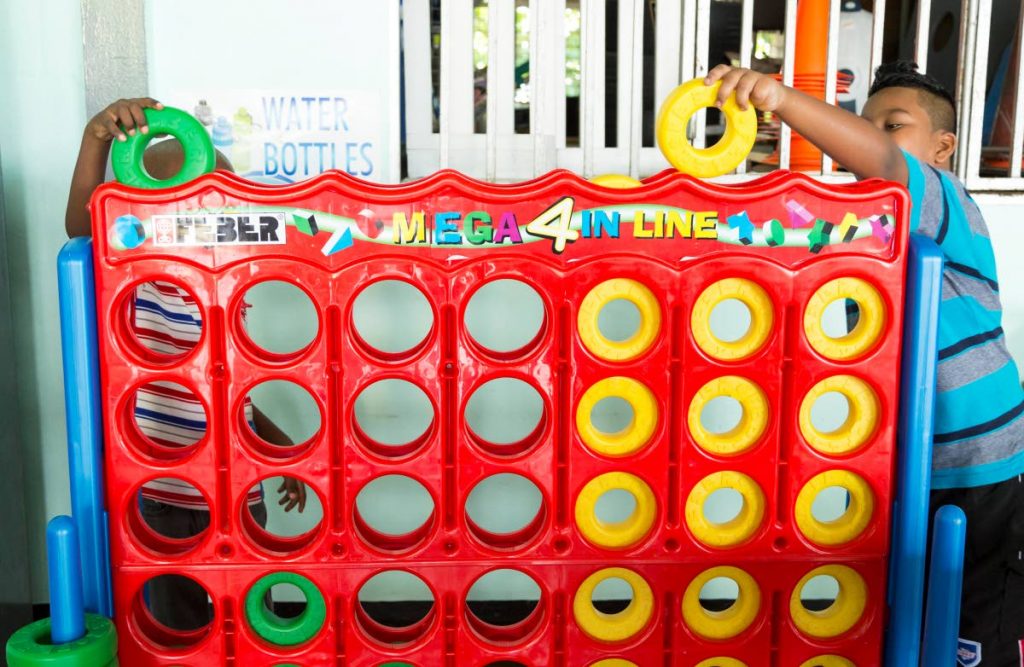Special needs access to private education

DR RADICA MAHASE
JASON is almost four years old and he is on the autism spectrum. For the past year he has been attending a prestigious pre-school which costs $7,000 a term.
The teachers and school administrators are aware that he has been diagnosed with high functioning autism and they were willing to enrol him in the school. When the new academic year began earlier this month, his parents were told that he could not be promoted to the next class as he could not read and write. His parents were worried and were ready to keep him back a year until they were advised that at age four, Jason should really be learning social interaction, communication, values, etc. and then they started looking at other options for him.
In TT, there is this general feeling that private education is better as private schools are more organised, the student population is lower, there is lower student to teacher ratio, more individualised attention, etc. In many cases private schools are linked to high status and parents believe that they children are in an environment that is safer both physically and mentally.
In most cases with special needs children, parents do not access private educational institutions because of status but because of pure desperation, given the limited number of public special schools and the issues with educating a child at these schools. With autism and other special needs, parents often do not have many choices and usually the child ends up attending one of the few schools that would actually accept the child.
The problem, however, is not because a school is privately owned and operated means that it is better than other schools or the best school for the child. Other than the high cost, with school fees ranging from $4,000 to $10,000 per term, many parents have complained of teachers who have no idea of autism; school administrators who believe that the child’s special needs should be kept a secret from teachers and students and cases where their children have been bullied by other children.

Whether or not parents are paying high fees, it is the responsibility of all schools to provide the best quality education for the children attending these schools. In order for this to happen and for the private education system for those with special needs, to work properly in TT we need the following:
Properly qualified, trained and experienced teachers – too many schools are quick to enrol students with autism and other special needs but their teachers have no knowledge of children with different abilities. In the end, parents pay exorbitant fees but they children do not get any specialised classes and are taught in outdated techniques which are monotonous, uninteresting and de-motivating to a child. When the child cannot learn the teachers and schools are quick to blame this on the child’s “disability”.
Check and balances to maintain a high quality of education – presently in our country, anyone can set up a classroom, enrol students and call it a “special school”. There is nothing in place to regulate the establishment of private schools, to check the qualifications of teachers or the standard of education that is available at these schools. In fact, special education has become such a viable business that many “regular” schools have started accepting students with special needs despite the fact that their staff is not trained in special needs and they have not upgraded their facilities to accommodate those with special needs. Ideally there should be a regulatory body with checks and balances in place to ensure that all private schools are offering a high quality education.
National special needs parents association – the development of an organised body that could advocate specifically for the interest of students and parents with special needs. In the absence of any regulatory body this body just might be the main watchdog for special needs private educational institutions.
Presently in TT parents are held at ransom by private schools. Parents are forced to pay high fees at private schools. They make huge sacrifices to send their children to these schools simply out of desperation to get their child educated. It is unfair to parents that they pay high fees and schools do not deliver quality education because there is nothing in place at a national level to regulate these schools. There needs to be a higher level of integrity, commitment and professionalism from private schools offering special needs education.
Dr Radica
Mahase
Founder/director, Support Autism T&T


Comments
"Special needs access to private education"